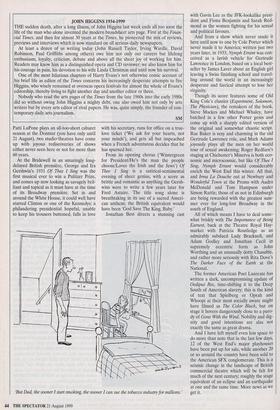JOHN HIGGINS 1934-1999 THE sudden death, after a long illness,
of John Higgins last week ends all too soon the life of the man who alone invented the modern broadsheet arts page. First at. the Finan- cial Times, and then for almost 30 years at the Times, he pioneered the mix of reviews, previews and interviews which is now standard on all serious daily newspapers.
At least a dozen of us writing today (John Russell Taylor, Irving Wardle, David Robinson, Paul Griffiths among others) owe him not only our careers but lifelong enthusiasm, loyalty, criticism, debate and above all the sheer joy of working for him. Readers may know him as a distinguished opera and CD reviewer; we also knew him for his courage in pain, his devotion to his wife Linda Christmas and until now his survival.
One of the most hilarious chapters of Harry Evans's not otherwise comic account of his brief life as editor of the Times concerns his increasingly desperate attempts to fire Higgins, who wisely remained at overseas opera festivals for almost the whole of Evans's editorship, thereby living to fight another day and another editor or three.
Nobody who read the arts pages of the Times from the late 1960s into the early 1980s did so without owing John Higgins a mighty debt, one also owed him not only by arts writers but by every arts editor of rival papers. He was, quite simply, the founder of con- temporary daily arts journalism.
SM


























































 Previous page
Previous page